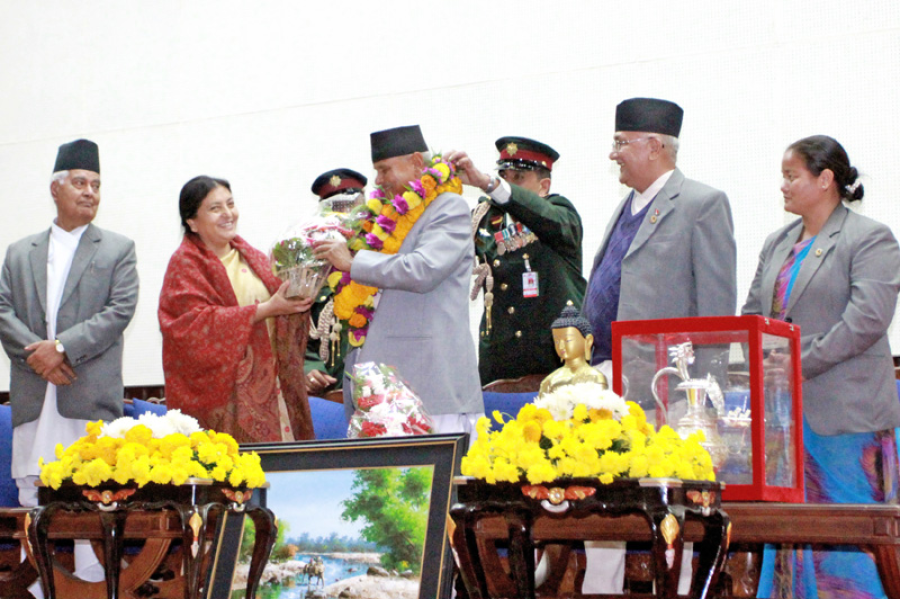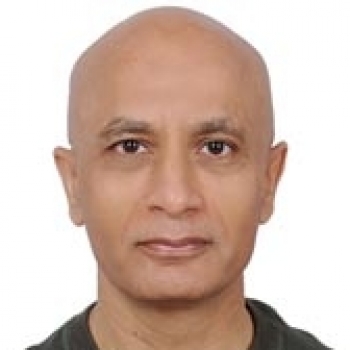Columns
Presidents and precedents
Bad precedents in a budding democracy like Nepal’s can become a self-fulfilling prophecy.
Paban Raj Pandey
Nepal’s is a young democracy, with the current constitution being less than eight years old. The nation should thus be careful not to set bad precedents. Nevertheless, both Dr Ram Baran Yadav, who served as the first president from July 2008 to October 2015, and his successor Bidya Devi Bhandari, who is due to retire next month, have had their share of bad precedents. The list also includes Sher Bahadur Deuba, president of the Nepali Congress and former prime minister, and KP Sharma Oli, former prime minister and chairperson of the CPN-UML, who tried but was overruled twice by the Supreme Court during his February 2018-July 2021 tenure as prime minister.
Courts are not bound by precedents, but they try to follow the rule of law established in earlier cases. Stare decisis—a Latin term—means to stand by things that have been decided and not to disturb what is settled. The doctrine says courts will not depart from precedents in making their decisions unless prior decisions are flatly absurd or badly reasoned. Nepal’s judicial system is a mixture of both common and civil law. In a common law system, judges try to rule consistently with previous decisions on the same subject. A civil law system relies on statutes—rather than prior settled cases—for guidance, placing greater emphasis on legal codes framed by the legislature.
Presidential activism
The 2015 Constitution envisions the presidency as a ceremonial post—a kind of figurehead. Article 61 says the president shall be the head of the state, adding that the president shall promote the national unity of Nepal and that the president's main duty shall be to abide by and protect the constitution. On the surface, this is plain-vanilla language; but it simultaneously leaves someone with prejudices with plenty of room to interfere. Sentiments surrounding national unity and constitution protection are so broad that they can be easily massaged to suit one’s bias. In the nation’s embryonic democracy, there is no shortage of such self-centred interests. The political culture hardly shows maturity.
In May 2009, the then Prime Minister Pushpa Kamal Dahal sacked Army General Rookmangud Katawal; the latter was resisting group integration of Maoist rebels into the Nepal Army. Kul Bahadur Khadka was named Katawal’s successor. President Yadav overrode both decisions. Dahal soon resigned, and the coalition government fell. Many viewed Yadav’s activism as an overreach. Fast forward to last September when President Bhandari refused to endorse the bill to amend the Citizenship Act of 2006 as she had reservations against some of the provisions. Her action was widely criticised, even as Shital Niwas defended this, saying she needed to safeguard the constitution.
Arguably, both Yadav and Bhandari were right in their own way. When Dahal tried to fire Katawal, the 1996-2006 Maoist insurgency had just ended, the monarchy was gone and the nation was trying to cope with the subsequent peace accord. If Yadav did not intervene and Dahal succeeded in sacking Katawal, this would probably encourage the Maoist leader to go for more power grab. Similarly, one of the reasons Bhandari refused to authenticate the citizenship bill is her justifiable demand that a foreign woman married to a Nepali man be made to wait seven years before she is granted citizenship; the bill would do so as soon as a process of giving up her current citizenship is initiated.
That said, no matter how good the intentions, the fact is that both these presidents acted beyond what the constitution accords them. This has now resulted in a situation in which a consensus is building among the political parties that the post is very powerful—regardless de jure or de facto—and they all want to have one of their own in Shital Niwas once Bhandari leaves. An election will be held on March 9 to elect the third president of Nepal. The top three parties are all angling for it. Dahal and Oli are part of a ruling seven-party alliance. Oli would like one of his to be elected president, claiming that was part of the original deal. Prime Minister Dahal is for a consensus candidate.
Constitution needs to be specific
The Nepali Congress is not in the ruling alliance and claims to be in the opposition. It is a debatable claim as Deuba’s party also gave its vote of confidence to Dahal, who won 268 of 270 votes in the 275-member House of Representatives. The truth is, despite being the largest party in the November 20 election last year, Deuba failed to lead the new government as greed took over. In a parliamentary system, the opposition acts as checks and balances on the ruling parties. Ideally, the Nepali Congress would have done the system justice had it chosen to remain in active opposition. Deuba’s confidence vote is merely an attempt to break the Oli-Dahal alliance and/or win the presidency. It sets a bad precedent.
The only good that came out of Deuba’s action is that it gives the remote control to Dahal, who otherwise was under the beck and call of Oli. The CPN-UML, which finished second in last year’s general election, already holds the Lower House speakership and crucial ministries, including foreign affairs, finance, and defense. In last year’s election, voters did not want a concentration of power in one party; if the CPN-UML also gets the presidency, the risk of that occurring rises. In the past, Oli has shown a penchant for authoritarian leadership. In 2020-2021, he dissolved the parliament twice; both were deemed unconstitutional by the Supreme Court. Had Oli succeeded, it would have set a dangerous precedent.
The apex court’s decision to reinstate the dissolved parliament can now act as a precedent—in a good way. Bad precedents in a budding democracy like Nepal’s can become a self-fulfilling prophecy. If the political leadership and/or the general public believe that it was within Yadav’s and Bhandari’s rights to act the way they did, no corrective measures will be taken. No one will file a case in the Supreme Court, for instance. The leading parties are currently falling over each other to win next month’s election. This can entice more presidential infractions in the future. Specific mention in the constitution of what the president can and cannot do can stop this. Generic statements can induce abuse.




 16.12°C Kathmandu
16.12°C Kathmandu















